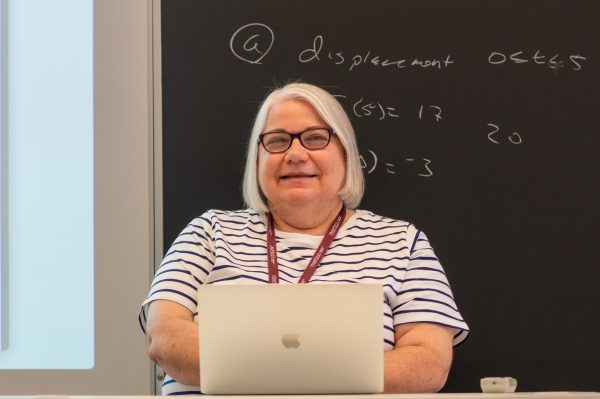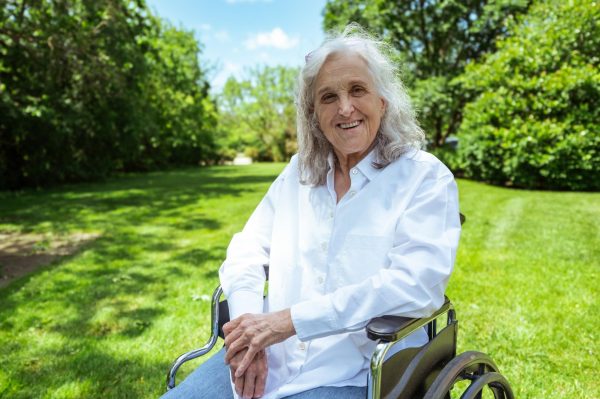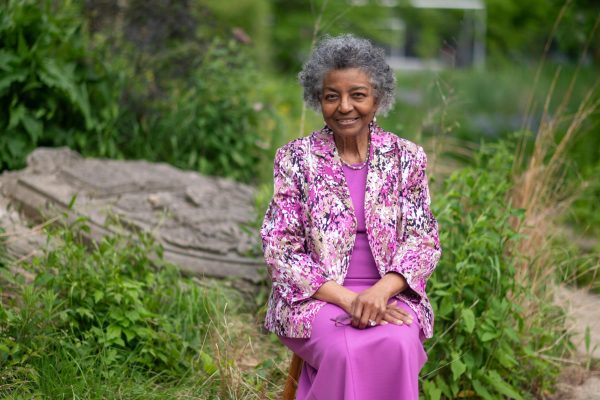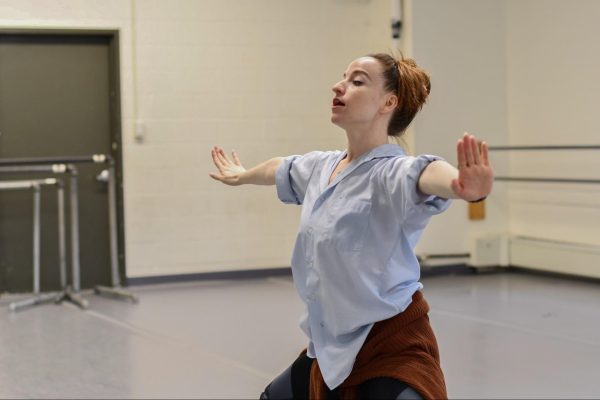For young women of color, Justice Jackson represents judicial progress, work
Young Women of Color club members Taylor Patterson, Raven Reid and Kiran Chinniah applaud while watching Ketanji Brown Jackson’s Supreme Court acceptance speech.
May 25, 2022
Young Women of Color club members excitedly fill the classroom, grabbing chairs and pushing desks to the front while a student hooks up the screen projector. The students chatter about the impact of the historical event, the machine whirring as the board slowly illuminates. The room hushes, someone hits play and the speech begins.
The speaker is Ketanji Brown Jackson, with confidence and poise elaborating on her motion to be appointed to the Supreme Court.
Judge Jackson became the first African American woman to be appointed to the Supreme Court as the 116th Associate Justice on April 7, after being nominated on Feb. 25. For students at Lab and individuals of color, the confirmation acts as progress toward increased representation within the American judicial system.
Sophomore Raven Reid, who identifies as African American, says that they feel proud of the confirmation.
The impact of the event extends to various areas of the Lab community, like workshop and club leaders.
Social Justice Week planner Mahi Shah said Judge Jackson is setting an example by showing that a person can have an impact on others no matter their background or identity. She said that Ms. Jackson could be the difference for others even in the face of opposition.
Diversity within government and other institutions is more prevalent today than it was for individuals of older generations.
People of color, people of different backgrounds, people of different belief systems are more welcome at the table.
— Sharon Williams
“It’s definitely more diverse than it has been, and I also think that people of color, people of different backgrounds, people of different belief systems are more welcome at the table,” said Sharon Williams, Young Women of Color club adviser . “Or at least, are feeling more empowered to make a place at the table because it hasn’t been given.”
In addition to being a celebratory milestone, the confirmation hearing also showcased political discord in the campaign to governmental equality. During her confirmation, Judge Jackson received criticism and opposition based on party lines. She had to navigate these divisions throughout the whole process of her designation.
Ms. Williams said she knew there were going to be certain voices that would push against Judge Jackson, making the process challenging. These pushbacks called for Ms. Jackson to affirm and balance her personal beliefs with the responsibilities of being a legal official.
“She’s setting an example by staying true to herself and her beliefs as well as really upholding the law,” said junior Kiran Chinniah, president of the Young Women of Color club. “Her role is not to take a political standpoint but to interpret the law regardless of politics.”




















